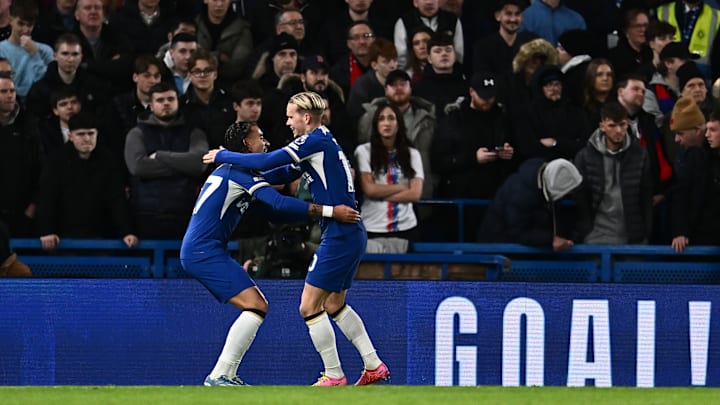Chelsea's recent consistent run of form at Stamford Bridge continues as they fend off Crystal Palace on Wednesday night. The Blues showed improvement after their loss to Wolves last Sunday. It was also their fifth win in six games in all competitions at home.
Here are three lessons learned from the fixture.
1. Mauricio Pochettino persists in making questionable decisions.
Once again, it was another match with players starting in their unusual positions. Pochettino fixates on this unconventional approach without benefiting anyone. In the latest game, Levi Colwill, typically a center-back, started as a left-back. Meanwhile, Ian Maatsen, a left back, was positioned at right wing, leaving right winger Noni Madueke on the bench. Fortunately, Malo Gusto started in his preferred right-back position, bolstering the strength of the right-side attack.
However, the second half saw even more perplexing changes initiated by Pochettino. Pochettino moved Gusto to left-back and assigned Axel Disasi, usually a center-back, to play as the right-back. This decision was made instead of moving Maatsen to left-back while letting Madueke come on at right wing and allowing Gusto to continue in his established right-back role.
Chelsea's attack improved when Madueke entered the pitch later to replace Christopher Nkunku at right wing, a position unusual to him.
Madueke secured the win by successfully converting the penalty he earned. The young Englishman again demonstrated why he deserves more playing time at Chelsea, contrasting with less effective players like Sterling. The victory's credit is on the players' abilities rather than anything associated with Pochettino's tactical acumen.
2. The attack looked promising.
While not flawless, Chelsea's attack appeared satisfactory in the first half. The inclusion of Nkunku contributed to the fluidity, and the standout performance from Gusto, who earned the Man of the Match title, was exceptional. The young Frenchman's movement and desire were instrumental in the hosts scoring their first through Mykhailo Mudryk. Nicolas Jackson's linkup play with his teammates showed promise even though it was not error-free.
Pochettino's alterations in the second half negatively impacted the attack, only recovering after the subsequent changes. Armando Broja showcased good movement, but Jackson was again at fault for missing quite a few decent chances.
3. Defensive errors facilitated the visitors in scoring a goal.
Once again, Chelsea conceded a goal due to their mistakes. Initially, Moises Caicedo failed to keep up with Michael Olise, whom he was marking. When the ball arrived, Colwill attempted to contest a header with Jean-Philippe Mateta, inadvertently providing Olise ample space to take a touch and score.
Although silly mistakes at the back were still noticeable, they were not as frequent or consequential as during their visit to Molineux. Caicedo's passes to Conor Gallagher were occasionally so inaccurate that they presented challenges for the Englishman. Colwill struggled to deal with Olise, and Crystal Palace's physical style added pressure, causing difficult moments for Chelsea's backline.
